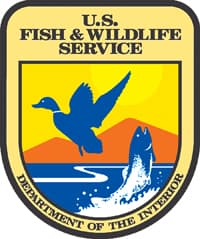U.S. Fish and Wildlife Service Provides $5.6 Million in Grants to 12 States for Conservation Projects
OutdoorHub 07.17.14

Imperiled species will benefit from a total of $5.6 million in grants for 16 projects in 12 states through the U.S. Fish and Wildlife Service’s competitive State Wildlife Grants program. The grants, which focus on large-scale conservation projects yielding measurable results, will be matched by more than $2.9 million in non-federal funds from states and their partners for projects that work to conserve and recover wildlife identified by states as Species of Greatest Conservation Need and their habitats. The 12 states receiving grants are: Arizona, Colorado, Idaho, Iowa, Kentucky, Massachusetts, Maine, Michigan, Minnesota, Nebraska, South Carolina and Washington.
“State Wildlife Grants help keep sensitive species from declining further,” said Hannibal Bolton, the Service’s Assistant Director for Wildlife and Sport Fish Restoration. “In Arizona, for example, the program has helped protect the black-tailed prairie dog by funding the development and testing of a treatment for sylvatic plague, a major source of mortality for the species. These prairie dogs serve as prey for other rare species of birds and mammals, so protecting them helps the Service and states successfully maintain the integrity of western grassland ecosystems.”
The grant funds will benefit a variety of species and habitats. In five northeastern states, partners will implement a regional, landscape-scale strategy to conserve the imperiled wood turtle. In Nebraska and Wyoming, partnering wildlife agencies will help determine the conservation status of a variety of imperiled bat species through data collection, while also improving and protecting more than 1,100 acres of habitat to benefit these species. In Washington and Oregon, partnering state fish and wildlife agencies are using funding to pursue a landscape-scale conservation initiative in the Willamette Valley and Puget Trough regions to benefit federally threatened and endangered species, as well as a host of other state-identified Species of Greatest Conservation Need.
For more information about each of the grant projects, visit http://wsfrprograms.fws.gov/Subpages/GrantPrograms/SWG/SWG_Funding.htm.
State Wildlife Grant-funded projects implement strategies and actions to conserve species identified in approved state wildlife action plans. Funding for the grants comes from Fiscal Year 2014 appropriations.
All 50 states and six territorial wildlife agencies have approved state wildlife action plans that collectively provide a nationwide blueprint for actions to conserve Species of Greatest Conservation Need. The plans were created through a collaborative effort among state and federal agencies, biologists, conservationists, landowners, sportsmen and -women and the general public.
The Service’s Wildlife and Sport Fish Restoration Program (WSFR) is a 75-year partnership to benefit fish and wildlife and provide Americans with access to the outdoors through a self-imposed investment paid by manufacturers and users of gear bought by anglers, boaters, hunters and shooters and managed by federal and state fish and wildlife agencies. Fishing and hunting licenses and motorboat fuel taxes also support fish and wildlife. Since its inception, WSFR has provided more than $16 billion for fish and wildlife, supplied jobs for thousands of Americans, and benefitted local economies through boating, fishing, hunting and shooting activities.

